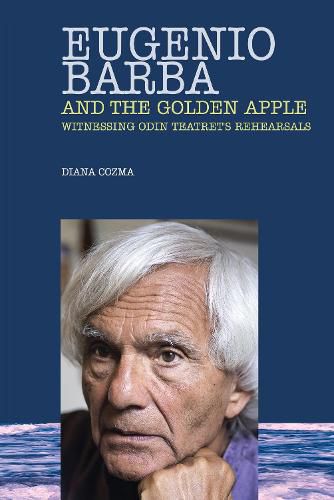Readings Newsletter
Become a Readings Member to make your shopping experience even easier.
Sign in or sign up for free!
You’re not far away from qualifying for FREE standard shipping within Australia
You’ve qualified for FREE standard shipping within Australia
The cart is loading…






This title is printed to order. This book may have been self-published. If so, we cannot guarantee the quality of the content. In the main most books will have gone through the editing process however some may not. We therefore suggest that you be aware of this before ordering this book. If in doubt check either the author or publisher’s details as we are unable to accept any returns unless they are faulty. Please contact us if you have any questions.
In September-October 2010 and February-March 2011, Diana Cozma had the privilege of watching the rehearsals of The Chronic Life, directed by Eugenio Barba, in Holstebro, Denmark, when she lived at Odin Teatret’s guest house. Eugenio Barba’s dramaturgy is discussed in the first part of the book, The Biography of a Dramaturgical Language, while the second part, The Dramaturgy of a Spectator, based on her rehearsal diary, reveals her reflections on Barba’s evocative dramaturgy and her emotional and intellectual responses to the rehearsal process.
I feel the author’s intensity in describing the actions and thoughts of the director and the actors who for years have accompanied her in her writing both in Romanian and English. I recognise the same tension, the same desire and effort that flow from a certain passionate reaction in the human being: gratitude towards the person who opened our eyes and awakened our energies. I recognise the origin of this writing, the nature of its particular style. It reminds me of my struggle with words or with the incandescence of the actors, in the attempt to cross over into that dimension of reality which forces us to go beyond what we are. It is a struggle that is constantly accompanied by the temptation to abandon and give up. Style is the luminous radiography of the darkness within us. (excerpt from the Foreword by Eugenio Barba).
$9.00 standard shipping within Australia
FREE standard shipping within Australia for orders over $100.00
Express & International shipping calculated at checkout
This title is printed to order. This book may have been self-published. If so, we cannot guarantee the quality of the content. In the main most books will have gone through the editing process however some may not. We therefore suggest that you be aware of this before ordering this book. If in doubt check either the author or publisher’s details as we are unable to accept any returns unless they are faulty. Please contact us if you have any questions.
In September-October 2010 and February-March 2011, Diana Cozma had the privilege of watching the rehearsals of The Chronic Life, directed by Eugenio Barba, in Holstebro, Denmark, when she lived at Odin Teatret’s guest house. Eugenio Barba’s dramaturgy is discussed in the first part of the book, The Biography of a Dramaturgical Language, while the second part, The Dramaturgy of a Spectator, based on her rehearsal diary, reveals her reflections on Barba’s evocative dramaturgy and her emotional and intellectual responses to the rehearsal process.
I feel the author’s intensity in describing the actions and thoughts of the director and the actors who for years have accompanied her in her writing both in Romanian and English. I recognise the same tension, the same desire and effort that flow from a certain passionate reaction in the human being: gratitude towards the person who opened our eyes and awakened our energies. I recognise the origin of this writing, the nature of its particular style. It reminds me of my struggle with words or with the incandescence of the actors, in the attempt to cross over into that dimension of reality which forces us to go beyond what we are. It is a struggle that is constantly accompanied by the temptation to abandon and give up. Style is the luminous radiography of the darkness within us. (excerpt from the Foreword by Eugenio Barba).